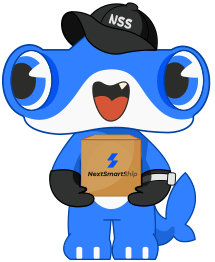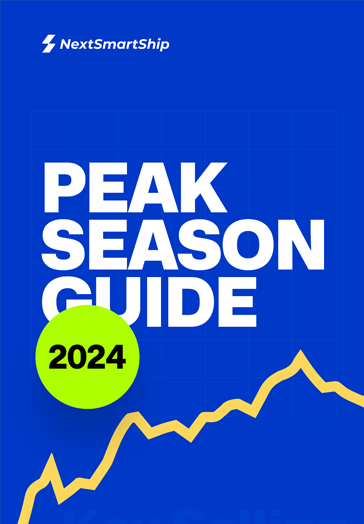One of the most common mistakes Kickstarter creators make is not thinking about how to handle shipping before launching the campaign. To ensure an excellent experience for backers and deliver all of your products on time, you need to invest a lot of time in preparing and planning your supply chain and shipping strategies. Here are eight tips we have prepared.
Table of Contents
- 1. In-house fulfillment or a 3PL?
- 2. Consider the size and weight of the reward in advance
- 3. Estimate shipping costs before launching your Kickstarter campaign
- 4. Determine the destination countries, know the tax and customs policies of these countries.
- 5. Choose the right manufacturer and storage location
- 6. Simplify your rewards offering
- 7. Think about free shipping
- 8. If you feel overwhelmed
1. In-house fulfillment or a 3PL?
1.1 If you use in-house fulfillment
Make sure you have enough time, skills and resources to do it yourself. Preparing and planning supply chain and transportation strategies is very time consuming when doing Kickstarter fulfillment in-house.
For example, you need to take care of storage space, storage location, delivery method, customs declaration material, import and export documents, etc.; if you are packing yourself, you also need to consider the packing material and quantity, as well as barcoding and labeling.
1.2 If you go with third-party logistics:
There are several aspects to consider when choosing the right 3PL partner for your Kickstarter campaigns, and it’s important not to focus on just one metric, such as cost. Keep the following list in mind as you research and talk to potential partners:
- Pricing for 3PL services: Are the costs within budget? Are there additional costs that are not included in the standard pricing? Such as fuel surcharge, remote area surcharge, handling fee for oversized/overweight items, etc.
- Global shipping coverage: Can it reach backers in remote and unpopular countries? Where are the warehouses located?
- Shipping options: Can they offer the appropriate combination of shipping options for different crowdfunding projects, including from different fulfillment centers?
- Shipping time: will shipping be handled in a timely manner? When will the rewards be shipped once they arrive at the port? Will the packages be in transit until the cabin is full?
- Order tracking: Will the shipping status be updated on time? How can the package be tracked? Does the 3pl have its own order management system? Is the system good?
- Order distribution: is the final delivery made by overseas warehouse or local courier? Is there any notification after delivery to the backer?
- Size of the Company: can it handle bulk goods? Can it process a large number of orders in a short time? Are the fulfillment processes automated?
- After-sales services: policy for lost/damaged/not received shipments; the fees for reissuing a replacement, the return fee.
- Value-added services: What kind of customized services does the 3PL offer?
2. Consider the size and weight of the reward in advance
When designing and manufacturing your product, consider the size and weight of the items in advance. FedEx, UPS and USPS restrict the weight and size of packages. If your product is small enough, for example, if the thickness of the Kickstarter reward is no more than 30 mm, it can be packed in a standard envelope, which reduces the cost. If the package weighs less than 2 kg and its dimensions length + width + height together are less than 900 mm; also the largest dimension does not exceed 600 mm, it can be considered as a “small package”. If the product is fragile, use a bubble mailer or other suitable packaging/filling to avoid damage in transit. This material cost should be included in the shipping cost along with the shipping fee.
3. Estimate shipping costs before launching your Kickstarter campaign
Remember that weight, size, and packaging affect logistics costs. It would be helpful if you calculated the exact shipping costs for each reward you offer. To do this, you’ll need to know the size and weight of the package, as shippers calculate shipping costs based on weight or dimensions.
Dimensional weight (also known as volumetric weight) reflects the density of the package, or simply put, the space it takes up in a mode of transportation like an airplane.
The price calculation method of the logistics service provider is as follows:
Compare the volumetric weight to the actual weight and choose the greater weight as the chargeable weight. If you know the exact dimensions of the product, you can estimate the shipping cost more accurately, which is very helpful in setting the price for a reasonable profit margin.
Before shipping rewards to the backers, they often have to be transported from the manufacturer to the warehouse from where they are dispatched. Do not forget these costs.
4. Determine the destination countries, know the tax and customs policies of these countries.
Go into your crowdfunding campaign and make sure you know which countries you are willing and able to ship to. Determine the cost of shipping each reward to those countries, taking into account weight and dimension rules as well.
Shipping worldwide is not easy, and you can lose money on shipping orders abroad, so Kickstarter creators need to research and plan crowdfunding projects in detail. By studying crowdfunding campaigns for similar products, you can roughly estimate the geographic distribution of backers and then decide whether to limit the shipping location. If the profit is good, consider selling worldwide. Shipping fees for different countries and regions may vary.
Not only do you need to know the shipping costs in different countries and price your products/rewards based on those shipping costs, but you also need to know the duties/taxes and determine if your shipping method provides for duty paid delivery (DDP), which means the backers s are not responsible for paying the duties. Or if they will deliver duty unpaid (DDU), meaning your backers will be charged duties when they receive the product, which you will need to explain to them on your crowdfunding page. Please consider these costs in advance.
DDU: Customs duties (when the product arrives) are paid by backers, so your pricing does not include VAT.
DDP: The shipper (you) pays the customs fees upfront to the carrier, so VAT must be added to your list price.
For products being shipped overseas, there is a customs clearance process. This involves providing package information so customs can determine the duties (if any) to be paid. Electronic customs clearance through Stamps.com or USPS.com simplifies the process and saves a lot of paperwork. Previously, some people declared crowdfunding products as gifts, but that was incorrect. Back in 2015, the European Union ruled that crowdfunding products are not gifts. Regardless of how much the backer paid, it is recommended to declare the cost price of the product. If the backer spends $500 on a product with a cost price of $10, it will still be declared as $10.

5. Choose the right manufacturer and storage location
Manufacturer, warehouse and supplier locations play a significant role in determining the transportation and logistics process. Many use the strategy of selecting different warehouses/fulfillment centers around the world and shipping the reward to local backers from there. For example, you can select a warehouse in Europe that will be responsible for storing and shipping to all your backers in Europe. You can select another warehouse in the US to cover the entire North American region. The advantage of this strategy is that backers don’t have to pay customs fees. First, you pay less taxes, and second, the backer experience is better because they don’t have to worry about taxes.
6. Simplify your rewards offering
When planning what rewards to offer backers, keep things simple. The more product and style options you offer on Kickstarter, the more complex and expensive they can be to produce, sort, and pack. For example, if you’re offering a t-shirt as a reward, you don’t need to offer 12 colors and eight sizes to satisfy your backers. Instead, offer just a few manageable, simplified options that can significantly reduce shipping stress.

7. Think about free shipping
While shipping costs are at your expense, you can use this as a promotional tool to attract more supporters. More than any other incentive you can offer a backer, free shipping is perhaps the most effective. With free shipping, you can attract more supporters, but the downside is that the cost increases accordingly; consider this in the following scenarios:
Small products: Small products can be shipped by postal service, which is cheaper than other logistics providers. So if your product is smaller, you should offer free shipping to backers.
Free shipping in popular regions: 50% of the backers are from the US, and about 20% or 30% are from Europe. Many creators opt for U.S. and European warehouses, which can save on logistics costs. Consider offering free shipping to backers in these regions.
8. If you feel overwhelmed
Choose NextSmartShip 3PL service. We operate a fulfillment center in Shenzhen and warehouses in the US, Canada, Europe and Australia.
- We take care of everything: warehousing/picking/packing/labeling/shipping/taxes/customs clearance. Save time and energy.
- Worldwide fulfillment centers. Take care of your customers wherever they are. Improve their experience and your brand’s reach.
- Affordable shipping rates, reduce your Kickstarter shipping costs.
- Real-time order tracking to keep your backers in the loop. You and your backers can check order status at any time.
- For lost and damaged parts, there is a comprehensive compensation settlement policy.
- 24/7 customer service. Do not worry about logistics problems. We will take good care of it. You name it and we are on it. Let NextSmartShip handle the order fulfillment so you can focus on growing your business.Get Custom Solutions




